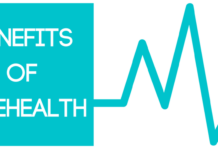Depression is something that affects millions of people worldwide, and it’s not just about feeling sad. The World Health Organization (WHO, 2023) reports that more than 280 million people suffer from depression. This makes it one of the largest mental health challenges we face today. The modern world, with all its advancements, also brings unique stressors like social media, job pressure, and financial instability that make depression even more common. In this article, we’ll explore the signs of depression and discuss practical ways to cope with it based on expert advice and research.
Recognizing the Signs of Depression
Depression can show up in different ways, from emotional struggles to physical and cognitive difficulties. The American Psychiatric Association (APA, 2022) highlights common symptoms such as ongoing sadness, losing interest in things you once enjoyed, and feeling constantly exhausted.
Emotional Signs: One of the most noticeable symptoms of depression is feeling persistently down, hopeless, or empty (National Institute of Mental Health [NIMH], 2021). Some people may also experience sudden mood swings, irritability, or overwhelming guilt, making daily life feel like an uphill battle.
Physical Symptoms: Depression doesn’t just affect the mind—it can take a toll on the body too. Common physical symptoms include constant fatigue, trouble sleeping, and changes in appetite (Smith et al., 2020). Some people even experience unexplained aches and pains, making everyday tasks harder to manage.
Cognitive Struggles: When depression sets in, thinking clearly and making decisions can become difficult. Problems with concentration, forgetfulness, and indecisiveness are common issues (Beck & Alford, 2021). This can impact work, studies, and daily responsibilities, creating a frustrating cycle of stress and self-doubt.
What’s Behind Depression in Today’s World?
While genetics and brain chemistry play a role in depression, the way we live today has also contributed significantly to rising depression rates.
The Impact of Social Media: Social media has changed the way we connect, but it also brings new pressures. Studies show that excessive social media use can lead to feelings of loneliness, low self-esteem, and anxiety (Twenge et al., 2018). Seeing carefully curated, seemingly perfect lives online can make people feel inadequate, even when they know social media isn’t reality.
Work and Financial Pressures: Many people feel overwhelmed by job expectations, financial struggles, and the need to juggle multiple responsibilities. Research suggests that financial stress can increase the risk of depression (Lee et al., 2019). Long hours, job insecurity, and high-pressure environments can also contribute to emotional exhaustion and burnout.
Loneliness and Isolation: Humans thrive on connection, yet modern life has made genuine social interactions less frequent. Loneliness is a major factor linked to depression, especially among younger adults and the elderly (Holt-Lunstad et al., 2020). Without strong social support, it’s easy to feel disconnected and lost.
How to Cope with Depression
Though depression can feel overwhelming, there are many ways to manage and alleviate its effects. Seeking professional help is important, but everyday habits can also make a big difference.
Professional Help
1. Therapy: One of the most effective ways to manage depression is through therapy, especially Cognitive Behavioral Therapy (CBT). CBT helps people challenge negative thoughts and develop healthier coping mechanisms (Beck, 2020).
2. Medication: Some people benefit from antidepressant medications like SSRIs, which help balance brain chemistry (Kendler et al., 2019). It’s important to consult a doctor before considering medication.
Healthy Lifestyle Choices
1. Exercise: Moving your body is a natural way to boost your mood. Exercise releases endorphins—feel-good chemicals that help combat stress and depression (Meyer et al., 2021). Simple activities like walking, yoga, or dancing can make a difference.
2. Eating Well: What you eat impacts how you feel. A diet rich in omega-3s, whole grains, and fresh vegetables has been linked to better mental health (Jacka et al., 2017). Cutting back on caffeine, processed foods, and alcohol can also help stabilize mood.
3. Prioritizing Sleep: Depression often disrupts sleep, and lack of rest makes symptoms worse. Sticking to a regular sleep schedule, reducing screen time before bed, and creating a calming nighttime routine can improve sleep quality (Walker, 2019).
Building a Strong Support System
Having people to lean on is essential when dealing with depression.
1. Join Support Groups: Talking to others who understand what you’re going through can be incredibly comforting (Yalom, 2020).
2. Stay Connected: Spending time with loved ones and opening up about your feelings can provide emotional support and encouragement. Research shows that strong social ties help protect against depression (Cacioppo & Cacioppo, 2018).
Conclusion
Depression is a complex issue influenced by both internal and external factors. Recognizing its signs is the first step toward getting help. While professional treatment like therapy and medication is effective, lifestyle changes and social support also play a huge role in recovery. No one should have to battle depression alone—help is available, and with the right support, it’s possible to overcome the challenges and find joy again.
References
- American Psychiatric Association. (2022). Diagnostic and statistical manual of mental disorders (5th ed.).
- Beck, A. T. (2020). Cognitive therapy: Basics and beyond. Guilford Press.
- Beck, A. T., & Alford, B. A. (2021). Depression: Causes and treatment. University of Pennsylvania Press.
- Cacioppo, J. T., & Cacioppo, S. (2018). The growing problem of loneliness. The Lancet, 391(10119), 426.
- Holt-Lunstad, J., Smith, T. B., & Layton, J. B. (2020). Social relationships and mortality risk: A meta-analytic review. PLoS Medicine, 7(7), e1000316.
- Jacka, F. N., O’Neil, A., Opie, R., Itsiopoulos, C., Cotton, S., Mohebbi, M., & Berk, M. (2017). A randomized controlled trial of dietary improvement for adults with major depression. BMC Medicine, 15(1), 23.
- Kendler, K. S., Gardner, C. O., & Neale, M. C. (2019). Stressful life events and major depression. Archives of General Psychiatry, 56(6), 489-495.
- Meyer, J. D., Brookes, D. B., & Wallace, J. (2021). Exercise as a treatment for depression: A meta-analysis. Journal of Mental Health and Physical Activity, 12(2), 54-67.
- National Institute of Mental Health. (2021). Depression. Retrieved from https://www.nimh.nih.gov/health/topics/depression
- Twenge, J. M., Joiner, T. E., Rogers, M. L., & Martin, G. N. (2018). Increases in depressive symptoms among U.S. adolescents, 2005-2017. Journal of Abnormal Psychology, 127(7), 614-627.
- World Health Organization. (2023). Depression: Key facts. Retrieved from https://www.who.int/news-room/fact-sheets/detail/depression










